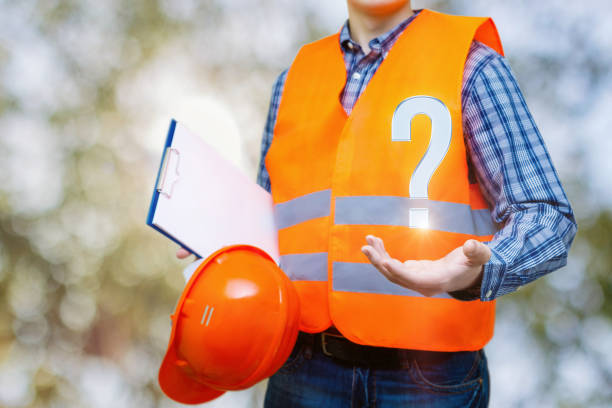Selecting the right construction company for your building project can distinguish between a smooth, successful experience and a costly, frustrating ordeal. The process goes beyond simply finding a contractor; it’s about identifying a partner who shares your vision, understands your expectations, and can deliver on time and within budget.
With so many options in the market, how do you make the right choice? This guide offers a fresh perspective on selecting a construction company by exploring key factors to consider and essential questions to ask. By the end, you’ll have a clear strategy for choosing a partner who fits your project’s unique needs.

10 Critical Factors When Choosing a Construction Company
To make an informed choice, you must evaluate potential construction companies from multiple angles. Here are ten essential criteria to guide your decision:
1. Proven Experience and Industry Expertise
Every construction project has unique demands. Whether you’re building a home, a commercial space, or an industrial facility, choosing a company that has previously handled similar projects is vital. Review their portfolio to assess their ability to manage your project’s scope, scale, and complexity. An experienced company will anticipate challenges and provide innovative solutions.
Tip: Look for companies that specialize in your specific type of project. For instance, residential construction companies may not have the technical know-how to handle large-scale commercial projects.
2. Strong Reputation and Verified References
Reputation is everything in the construction industry. Past clients’ feedback offers insight into a company’s reliability, communication, and ability to meet deadlines. Online reviews, testimonials, and word-of-mouth referrals are valuable resources for gauging reputation.
Tip: Ask for at least three references from previous clients and contact them directly. Ask questions about the company’s problem-solving ability and how well they managed project timelines.
3. Licensing, Certifications, and Credentials
Only work with licensed and insured contractors to avoid legal and safety issues. A licensed construction company demonstrates that it has met the required standards to operate within the region. Certifications from industry bodies like the International Organization for Standardization (ISO) signify a commitment to quality and best practices.
Tip: Request proof of insurance, licenses, and relevant certifications. These protect you in case of accidents, structural defects, or financial mishaps.
4. Financial Stability and Project Funding
Construction projects require substantial financial resources. If a contractor lacks financial stability, your project could face costly delays. Financially stable companies have access to suppliers, subcontractors, and the necessary materials.
Tip: Ask the contractor to provide details of their bonding capacity and review their financial statements. You don’t want a contractor who vanishes halfway through your project due to financial issues.
5. Strong Safety Standards and Practices
The construction industry faces significant safety risks. A reputable company prioritizes safety with proper training, regular site inspections, and adherence to Occupational Safety and Health Administration (OSHA) regulations.
Tip: Check the company’s safety record. Ask about their safety training programs and how they manage on-site emergencies. A safe project is a successful project.
6. Project Management Skills and Technological Tools
Effective project management ensures timely completion, efficient resource use, and adherence to project specifications. Companies that utilize modern project management tools (like Building Information Modeling or BIM) ensure better coordination and fewer delays.
Tip: Ask how the company tracks project milestones, communicates with stakeholders, and addresses unexpected changes. Companies with clear systems and reporting mechanisms inspire confidence.
7. Supplier and Subcontractor Relationships
No construction company works in isolation. Subcontractors and suppliers play a vital role in project success. Reliable subcontractors help maintain schedules and uphold quality standards.
Tip: Ask the company how they vet subcontractors and suppliers. Look for companies with long-term, trusted relationships with suppliers.
8. Cost-Effectiveness and Value for Money
Getting a cheaper bid does not guarantee the best value. Choose a contractor who balances quality, affordability, and service. Avoid companies that give suspiciously low bids, as they may cut corners or surprise you with hidden costs later.
Tip: Ask for a breakdown of costs, including labour, materials, and equipment. This will give you a clear picture of the budget and allow you to spot any unnecessary charges.
9. Effective Communication and Collaboration
A construction project requires ongoing communication between you and the contractor. Poor communication can lead to costly mistakes, delays, and misunderstandings. Choose a company that listens and responds promptly to questions or concerns.
Tip: Consider how well the contractor listens and responds during your initial consultations. If they avoid your questions, expect bigger issues during the project.
10. Transparency and Accountability
You can trust a contractor who is transparent about deadlines, budgets, and unforeseen challenges. Transparency means they are honest about potential risks and open to feedback.
Tip: Request a copy of the project timeline and milestones. Ask how they handle delays or project changes. A good company will have a formal change order process to prevent confusion.
15 Essential Questions to Ask Your Contractor
Asking the right questions is crucial when choosing a construction company. Here are 15 must-ask questions to help you make the right choice:
- Could you share examples of similar projects you have completed?
- Do you have experience with projects of this size and complexity?
- Are you licensed, bonded, and insured to operate in my area?
- Can you provide references from previous clients?
- How do you ensure safety on the job site?
- How do you approach project management and scheduling?
- What process do you use to select subcontractors?
- Can you walk me through your cost estimation process?
- What warranties do you provide, and how do you handle defects?
- How do you communicate project updates to clients?
- What sustainability practices do you incorporate into your projects?
- What software or project-tracking tools do you use?
- Can you provide a clear timeline with key milestones for my project?
- How do you address changes or unexpected challenges that arise during the project?
- What sets your company apart, and why should I choose you?
These questions reveal a company’s strengths, weaknesses, and working style. Pay attention to how they respond. Clear, confident answers are a sign of a reputable company.
Final Thoughts
Choosing the right construction company goes beyond cost and deadlines. It’s about finding a partner with experience, reliability, and a commitment to quality. By focusing on the ten key factors and asking the 15 essential questions, you can avoid potential pitfalls and increase your chances of project success.
Start by shortlisting companies with a proven track record, strong communication skills, and clear project management systems. Look for transparency, financial stability, and a commitment to safety. Don’t be afraid to ask hard questions. A reputable company will welcome the opportunity to demonstrate its credibility and professionalism.
Selecting the right construction partner can transform your project from a stressful experience to a successful journey. So, take your time, research, and ensure you’re making a well-informed decision. With the right contractor, your dream project can become a reality.

